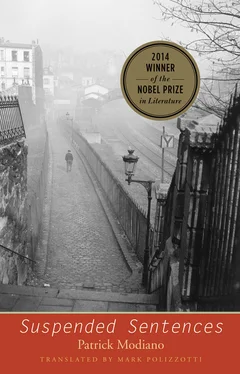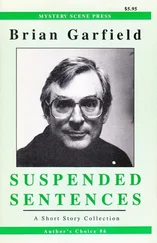I remembered that at one point on the last evening we’d spent together, Jansen had expressed concern about my future. And today, they’d assured me that my book would soon be published. I had finally emerged from that period of vagueness and uncertainty during which I lived as a fraud. I would have liked it if Jansen had been around to share my relief. I was sitting at a café near Rue Froidevaux, and for an instant I was tempted to go call at the studio, as if Jansen were still there.
How would he have greeted that first book? I hadn’t respected the instructions of silence he’d given me the day we’d spoken about literature. No doubt he would have deemed it much too indiscreet.
When he was the same age as I, he was already the author of several hundred photos, some of which composed Sun and Snow .
That evening, I flipped through Sun and Snow . Jansen had told me he wasn’t responsible for the namby-pamby title, which the Swiss publisher had chosen himself, without asking his opinion.
As I turned the pages, I felt more and more what Jansen had been trying to communicate, and what he’d gently challenged me to suggest with the word silence . The first two images in the book bore the same caption: At number 140 . They depicted one of those clusters of buildings on the outskirts of Paris on a summer’s day. Nobody in the courtyard or in the doorways to the stairs. Not one silhouette in the windows. Jansen had told me that a friend his age had lived there, someone he’d known in the Drancy transit camp. When the Italian consulate had Jansen released, the friend had asked him to go to that address to let his relatives and girlfriend know how he was doing. Jansen had gone to number 140, but he’d found none of the people his friend had mentioned. He’d gone back again after the Liberation, in the spring of 1945. In vain.
And so, feeling helpless, he’d taken those photos so that the place where his friend and his friend’s loved ones had lived would at least be preserved on film. But the courtyard, the square, and the deserted buildings under the sun made their absence even more irremediable.
The next images in the book dated from before the ones of number 140, since they’d been taken when Jansen was a refugee in the Haute-Savoie: expanses of snow, its whiteness contrasting with the blue of the sky. On the slopes were black dots that must have been skiers, a toy-sized ski lift, and the sun beating down on all of it, the same sun as for “number 140,” an indifferent sun. Through that snow and that sun showed an emptiness, an absence.
Sometimes, Jansen took objects from very close up: plants, a spider’s web, snail shells, flowers, blades of grass with ants bustling among them. One felt that he trained his gaze on something very specific to avoid thinking about anything else. I remembered when we’d sat on the bench, in the gardens of the Champs-Elysées, and he’d photographed his shoes.
And once again, mountain slopes of an eternal whiteness beneath the sun, the narrow streets and deserted squares of the South of France, several photos all with the same caption: Paris in July —my birth month, when the city seemed abandoned. But Jansen, in order to fight against the impression of emptiness and neglect, had tried to capture an entirely rural aspect of Paris: curtains of trees, canal, cobblestones in the shade of plane trees, the clock tower of Saint-Germain de Charonne, the steps on Rue des Cascades … He was seeking a lost innocence and settings made for enjoyment and ease, but where one could never be happy again.
He thought a photographer was nothing, that he should blend into the surroundings and become invisible, the better to work and capture — as he said — natural light. One shouldn’t even hear the click of the Rolleiflex. He would have liked to conceal his camera. The death of his friend Robert Capa could in fact be explained, as he saw it, by this desire, the giddiness of blending into the surroundings once and for all.
Yesterday was Easter Monday. I was walking along the portion of Boulevard Saint-Michel that stretches from the old Luxembourg station to Port-Royal. Strollers were crowded around the entrance gates to the gardens, but where I was walking there was practically no one. One afternoon, on that same stretch of sidewalk, Jansen had pointed out the bookstore at the corner of the boulevard and tiny Rue Royer-Collard. In it, just before the war, he had seen an exhibit of photographs by the painter Wols. He’d gotten to know the artist and admired him as much as he did Capa. He’d gone to visit him in Cassis, where Wols had taken refuge at the start of the Occupation. It was Wols who had taught him to photograph his shoes.
That day, Jansen had drawn my attention to the façade of the Ecole des Mines, an entire section of which, at eye level, was riddled with bullet holes. A plaque, cracked and slightly worn around the edges, noted that a certain Jean Monvallier Boulogne, age twenty, had been killed at that spot on the day Paris was liberated.
I’d remembered that name because of its sonority, which conjured up images of rowing a boat in the Bois de Boulogne with a blonde, a country picnic on the riverbank, a small valley with that same blonde and some friends — all of it cut short one afternoon in August, in front of this wall.
Now, that Monday, to my great surprise, the plaque had disappeared, and I was sorry that Jansen, on the afternoon when we were in that same spot together, hadn’t taken a picture of it and the bullet-pocked wall. I would have put it in the index. But now, suddenly, I was no longer sure Jean Monvallier Boulogne had ever existed, and moreover I was no longer sure of anything.
I entered the gardens, slicing through the people massed around the fence. Every bench and every chair was filled and the paths were crowded. Young people were sitting on the terrace rails and the steps leading down to the main fountain, so thick that you couldn’t get to that part of the garden. But none of it mattered. I was happy to lose myself in that crowd and — as Jansen would have said — to blend into the surroundings.
Enough space remained — about eight inches — for me to sit at the end of a bench. My neighbors didn’t even need to squeeze over. We were beneath chestnut trees that protected us from the sun, right near the white marble statue of Velléda. A woman behind me was chatting with a friend and their words lulled me: something about a certain Suzanne, who had been married to a certain Raymond. Raymond was a friend of Robert, and Robert the brother of one of the women. At first I tried to pay attention to what they were saying and gather some details that could act as reference points, so that the fates of Robert, Suzanne, and Raymond would gradually emerge from obscurity. Who knows? It’s possible that, by chance, whose infinite combinations will always remain a mystery, Suzanne, Robert, and Raymond might have crossed paths with Jansen one day in the street.
I was overcome by drowsiness. Words still reached me through a sundrenched fog: Raymond … Suzanne … Livry-Gargan … When you get down to it … Eye problems … Eze-sur-Mer, near Nice … The firehouse on Boulevard Diderot … The flow of passersby along the paths compounded this state of half-sleep. I recalled Jansen’s reflection, “Don’t let it faze you, kid. I’ve fallen into my share of black holes too …” But this time, it wasn’t a black hole like the one I’d experienced at nineteen at the Café de la Paix. I was almost relieved at this progressive loss of identity. I could still make out a few words, as the women’s voices became softer, more distant. La Ferté-Alais … Skirt-chaser … Repaid in kind … Camper … Trip around the world …
I was going to disappear in this garden, amid the Easter Monday crowds. I was losing my memory and couldn’t understand French anymore, as the words of the women next to me had now become no more than onomatopoeias in my ear. The efforts I’d made for thirty years to have a trade, give my life some coherence, try to speak and write a language as best I could so as to be certain of my nationality — all that tension suddenly released. It was over. I was nothing now. Soon I would slip out of this park toward a metro stop, then a train station and a port. When the gates closed, all that would remain of me would be the raincoat I’d been wearing, rolled into a ball on a bench.
Читать дальше












